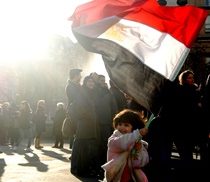25 February 2014
The dilemma that the so-called Arab Spring has entered in its third year since its inception in 2011 makes many wonder if it deserves the name in the first place. It is an Arab winter, bloody, gloomy and dark. The political deadlocks in Tunisia and Yemen, the rampant violence in Egypt, the demolition and possible division of Syria, instability in Libya, slow change in Morocco and Jordan, and controlled change in the Gulf are arguments put in the forefront to express disappointments over the Arab massive street protests and the little they have achieved. It should be remembered, however, that social movements always bring a spirit, and that is what marks them in history. That is what turns them into revolutions, after being mere revolts, unorganized protests, that are or appear to be leaderless, and of little internal and external support. The American and French revolutions took decades to stop violence and social distrust, and about two centuries to reach their current status (which other nations and societies are not obliged to mimic, but only to learn from).


